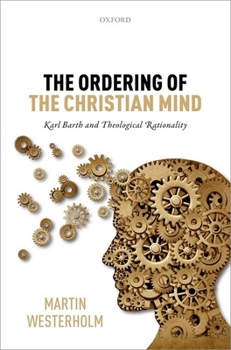Ordering of the Christian Mind: Karl Barth and Theological Rationality
The adequacy of Karl Barth's conception of theological reasoning is a decisive point of contention in assessments of the legacy and potential of twentieth-century theology. Barth's work is a formative point from which other twentieth-century figures take their orientation; later thinkers have most often taken their leave from his work by suggesting that it reflects an underdeveloped conception of the activities of human reason. The regularity with...
Format:Hardcover
Language:English
ISBN:0198753128
ISBN13:9780198753124
Release Date:January 2016
Publisher:Oxford University Press (UK)
Length:264 Pages
Weight:1.20 lbs.
Dimensions:0.9" x 6.2" x 9.4"
Customer Reviews
0 rating





